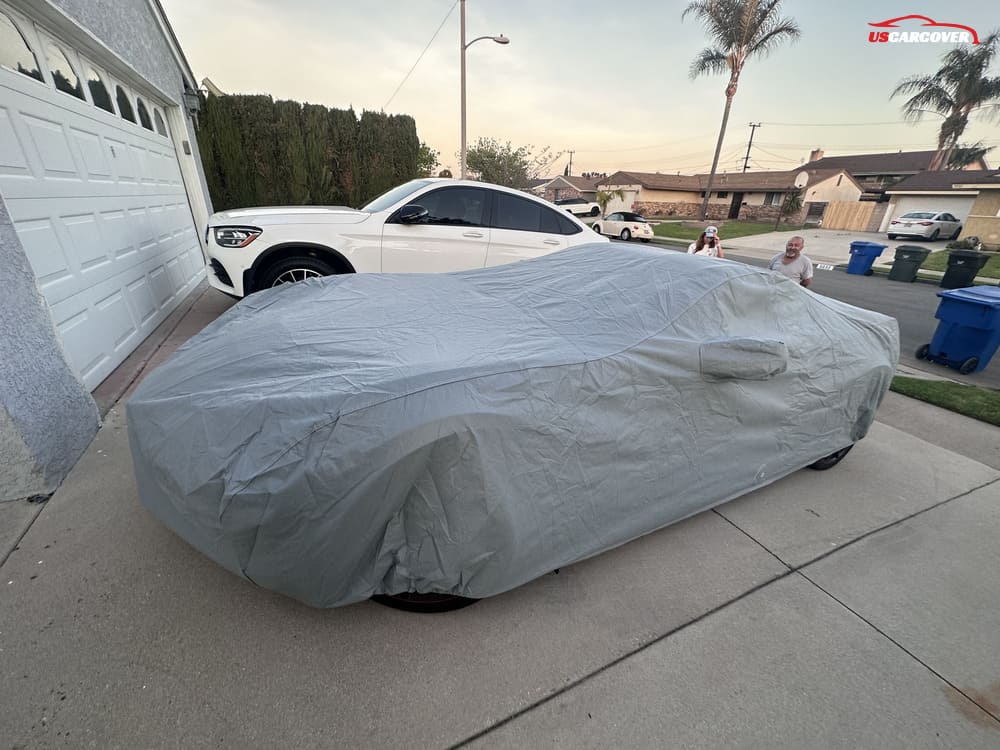
When buying a car cover, it's crucial to understand how the right choice can significantly protect your vehicle from environmental damage. A quality car cover acts as a shield against harsh weather conditions, UV rays, and potential scratches, ensuring your vehicle remains in pristine condition. In this guide, we will explore five essential notes to consider, empowering you to make an informed decision and safeguard your investment effectively.
Note 1: Understand Your Vehicle's Size and Shape
Selecting a car cover that fits your specific vehicle model is essential for optimal protection. A well-fitted cover not only enhances security but also prevents damage from environmental factors.
Significance of a Proper Fit: Choosing the right size ensures the cover stays in place during wind and rain, reducing the risk of scratches and exposure. A snug fit also prevents moisture accumulation that can lead to mold and corrosion.
Impact of Size and Shape: The size and shape of your vehicle influence how effectively the cover can shield it from elements. Covers that are too large can flap in the wind, causing abrasions, while those that are too small may not provide adequate coverage.
Checking Manufacturer Specifications: Always refer to the manufacturer's specifications for a perfect fit. This information will guide you in selecting a cover tailored to your vehicle's dimensions, ensuring comprehensive protection and peace of mind.
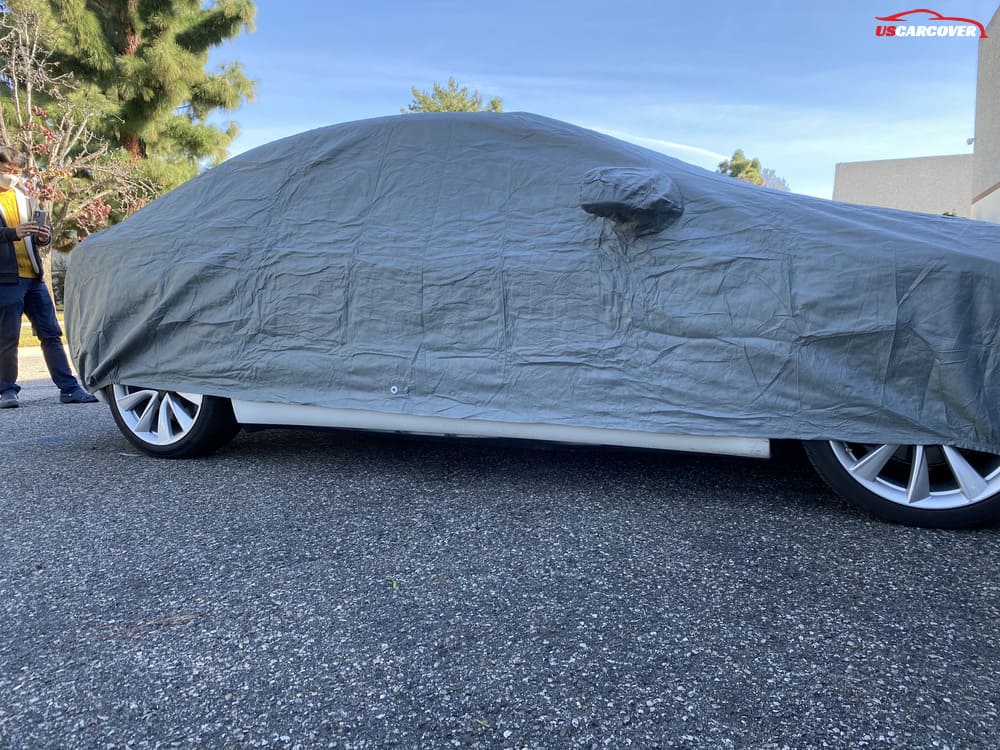
Related posts: Best 5 Waterproof Car Covers on the Market
Note 2: Consider the Material Quality
When buying a car cover, the material plays a crucial role in its overall performance and longevity. Different materials offer varying levels of weather resistance, durability, and protection, so choosing the right one for your needs is essential.
Types of Materials: Common options include polyester, cotton, and breathable fabrics. Polyester is lightweight and typically offers good UV protection, while cotton provides a softer touch for indoor use, minimizing scratches. Breathable fabrics allow air circulation, reducing moisture buildup under the cover.
Pros and Cons: Polyester is great for outdoor use due to its weather resistance, but it may lack the softness needed for sensitive paint finishes. Cotton, while gentle, lacks waterproofing and UV resistance, making it better suited for indoor environments. Breathable fabrics offer a balanced solution, preventing condensation and mold while still protecting the car’s surface.
Choosing Based on Climate: Selecting a car cover that suits your specific climate and storage conditions is key. For harsh outdoor conditions, opt for materials with superior weather resistance. For indoor storage, a soft, breathable fabric will offer the best protection without risking scratches or moisture damage.
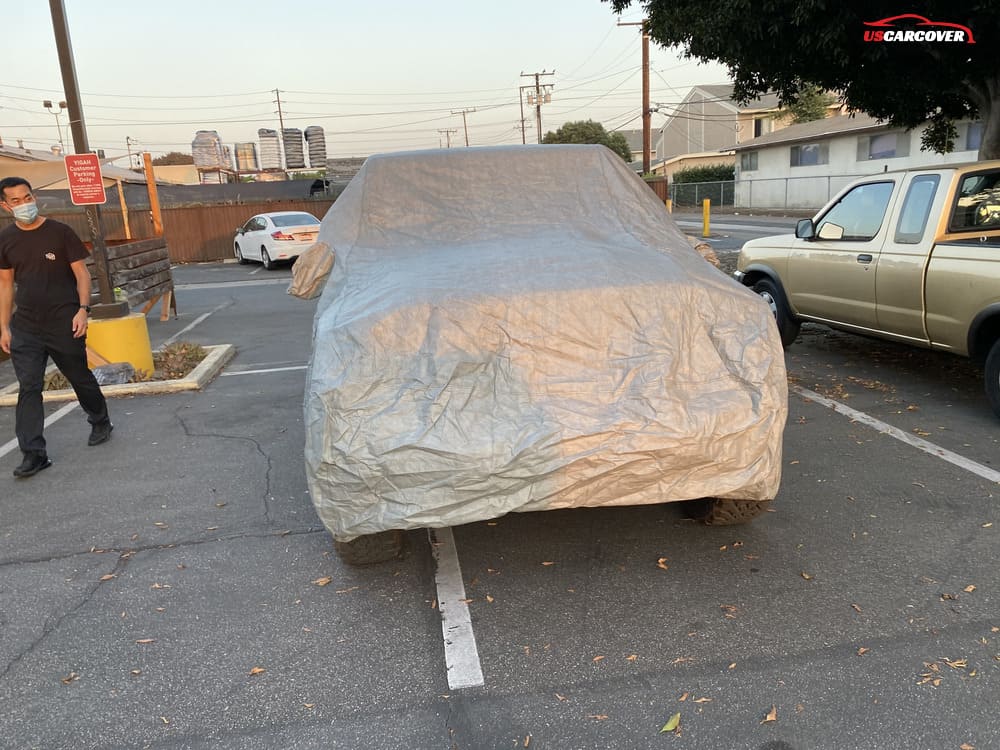
Related posts: Step by Step: How to Maintain Car Covers for Long-lasting Protection
Note 3: Evaluate Weather Resistance Features
When choosing a car cover, evaluating its weather resistance features is crucial for protecting your vehicle from harsh environmental conditions. These features ensure that your car remains safe from damage caused by elements like rain, UV rays, and wind.
Key Weather Resistance Features: Look for covers with strong waterproofing, which prevents rain and snow from seeping through and causing rust or water spots. UV protection is essential, especially in sunny climates, as it shields the car’s paint and interior from fading and cracking. Wind resistance ensures that the cover stays securely in place during storms, avoiding potential scratches from flapping material.
Protection from Environmental Factors: Each of these features helps guard your vehicle against specific threats. Waterproofing prevents corrosion and water damage, while UV protection keeps the car's exterior looking new. Wind resistance reduces wear from debris and minimizes the risk of scratches.
Examples of Top Car Covers: Brands like US Car Cover's WeatherTec HD Series and DASHIELD™ ULTIMUM SERIES excel in weather resistance, offering superior waterproofing and UV protection. These covers are designed to withstand extreme weather conditions, ensuring full protection for your vehicle year-round.
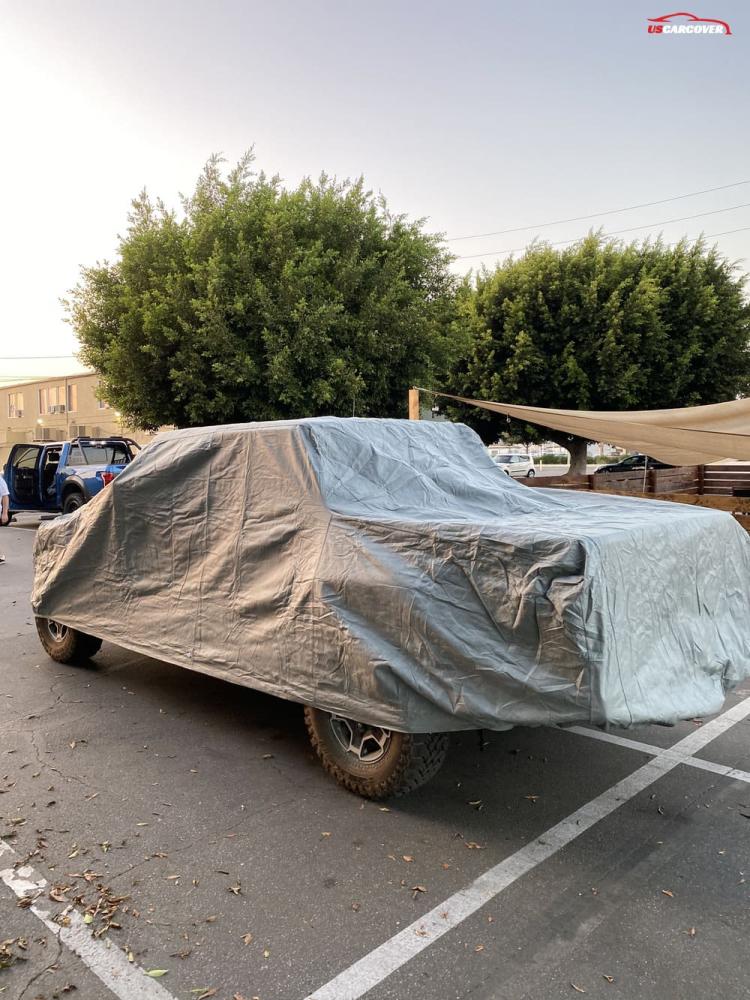
Note 4: Check for Additional Features and Functionality
When selecting a car cover, it's important to consider additional features that enhance both its usability and durability. These extra functionalities can make a significant difference in the protection and convenience of using the cover.
Desirable Features: Look for covers with reinforced seams to prevent tearing and increase longevity. Tie-down straps are essential for securing the cover tightly, especially in windy conditions, reducing the risk of it slipping off. Storage bags allow for easy and compact storage when the cover is not in use, prolonging its lifespan.
Enhancing Usability and Longevity: Features like reinforced seams and tie-down straps improve the cover’s resistance to wear and environmental stress. These features ensure that the cover remains in place, preventing potential damage from flapping or detaching. A storage bag keeps the cover clean and ready for use, avoiding unnecessary wear when stored.
Additional Functionalities: Some covers come with custom designs to fit specific vehicle models, ensuring maximum coverage and protection. Others may include access points like zipper openings, allowing convenient access to the car without removing the entire cover. These small but impactful features make the cover more versatile and user-friendly.
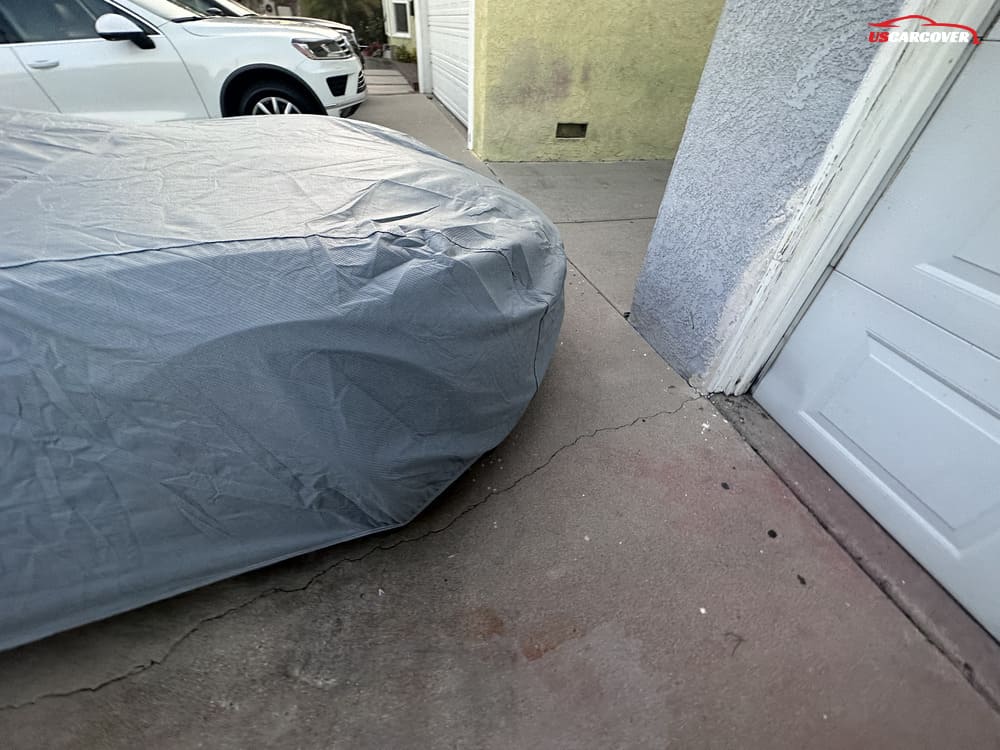
Related posts: 10 Benefits of Using Car Covers
Note 5: Read Customer Reviews and Ratings
Before purchasing a car cover, it's vital to research customer reviews and feedback to ensure you're making an informed decision. Real-world experiences can provide invaluable insights into the product's performance and durability.
Importance of Customer Feedback: Customer reviews highlight both the strengths and potential drawbacks of a car cover, helping you avoid common issues and select a product that meets your expectations. Honest feedback from real users often uncovers details you might not find in product descriptions.
Insights on Performance and Durability: Reviews can reveal how a cover performs in various weather conditions, whether it’s truly waterproof, wind-resistant, or capable of withstanding prolonged sun exposure. They also offer insights into the cover’s durability, letting you know if it holds up over time.
Look for Trusted Brands: Always opt for trusted brands with consistently positive ratings. Brands like US Car Cover are known for high-quality products, and their strong reviews reflect customer satisfaction in areas like fit, material quality, and weather resistance. This ensures you're investing in a cover that delivers on its promises.
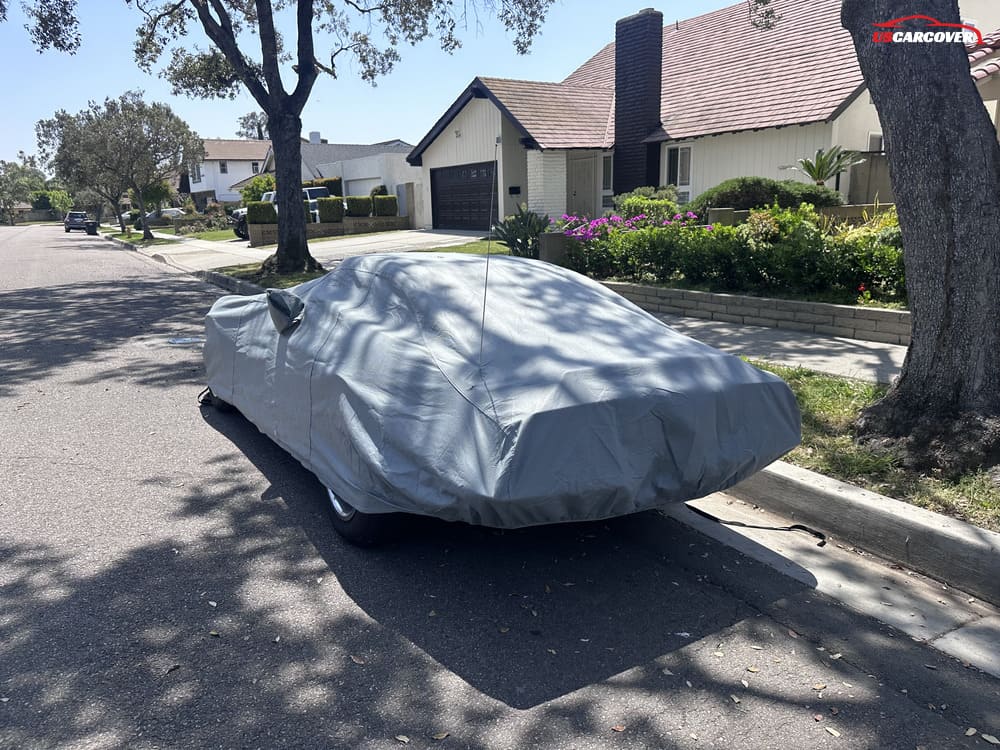
Related posts: 15 Tips to Protect Your Car Under Harsh Weather
Conclusion
Choosing the right car cover is essential for protecting your vehicle and maintaining its value. By considering these five key factors—understanding your vehicle’s size and shape, evaluating material quality, checking for weather resistance, looking for additional features, and reading customer reviews—you can make a well-informed purchase. A high-quality car cover not only shields your vehicle from the elements but also ensures long-term durability and convenience. Remember, investing in a trusted brand like US Car Cover guarantees both performance and peace of mind, safeguarding your vehicle for years to come.
